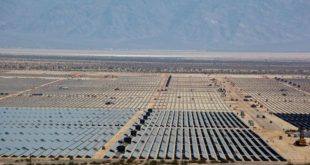New study underscores the need to transition to clean energy sources like propane as soon as possible.
WASHINGTON (July 2021) — The Propane Education & Research Council (PERC) emphasizes the need to accelerate decarbonization today with clean energy sources like propane. A new study from the National Oceanic and Atmospheric Administration (NOAA) found atmospheric levels of carbon dioxide peaked during May 2021 to the highest levels ever recorded at an average of 419 parts per million.
“This staggering statistic emphasizes the importance of all of us working together to reduce overall levels, which includes producers taking action to reduce emissions on their own farms,” said Mike Newland, director of agriculture business development for PERC. “Propane equipment like irrigation engines, mobile ag equipment, and flame weeding systems accelerate decarbonization while providing the reliable and consistent power producers need to be successful.”
Propane-fueled technologies produce fewer nitrogen oxide (NOx) and sulfur oxide (SOx) emissions than technologies fueled by electricity, gasoline, or diesel. Propane delivers a high-energy conversion with a low carbon intensity, while producing 43 percent fewer greenhouse gas emissions than using an equivalent amount of electricity from the U.S. grid system.
As an approved clean alternative fuel under the Clean Air Act of 1990, propane reduces emissions, makes it easy for producers to meet Tier 4 Standards and EPA regulations, and is safer and healthier for livestock. Propane offers a clean and efficient energy source for agricultural applications such as irrigation engines or building and water heating systems.
Producers interested in how they can lower their farm’s emissions with propane-powered equipment can visit Propane.com/Agriculture.
 Alternative Energy HQ solar power for homes, wind energy, and bio fuel issues
Alternative Energy HQ solar power for homes, wind energy, and bio fuel issues







